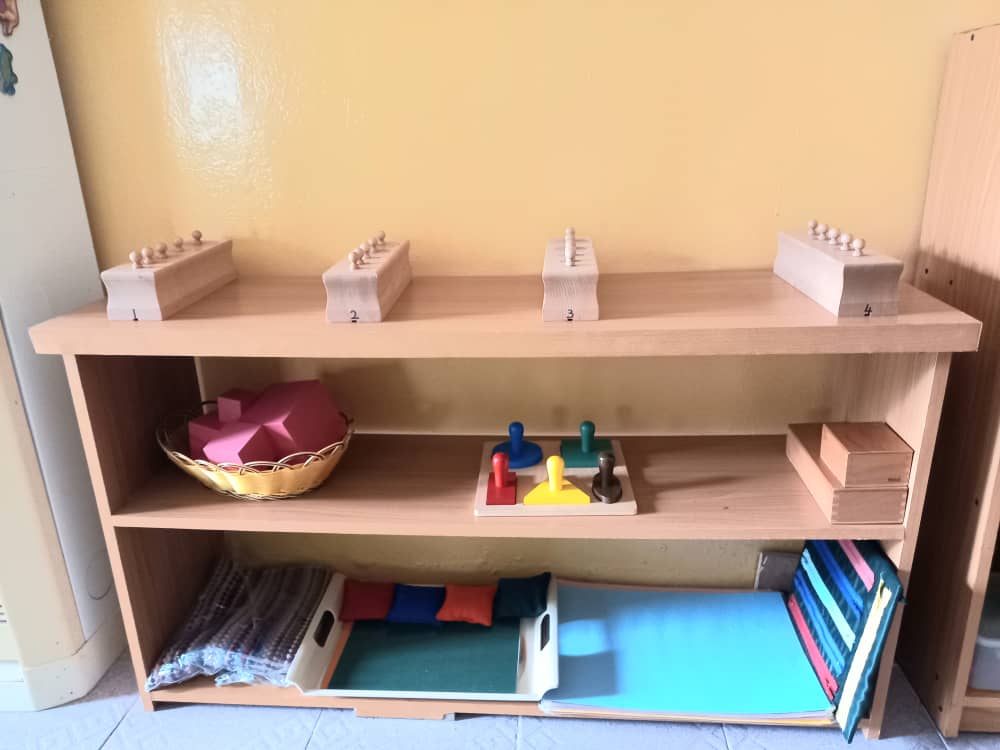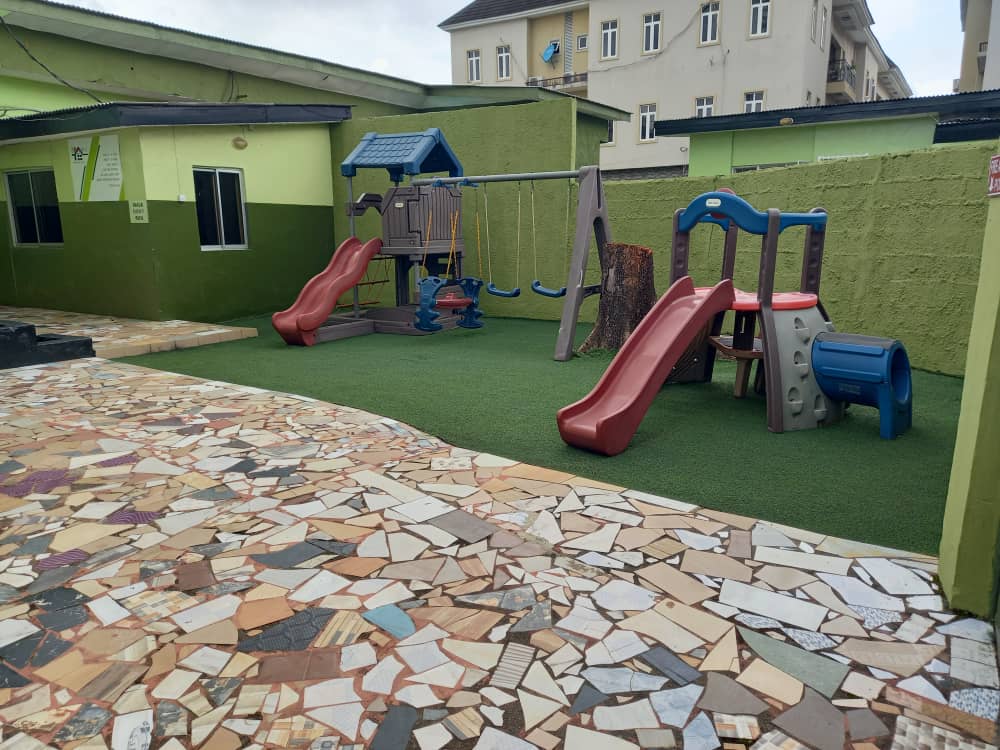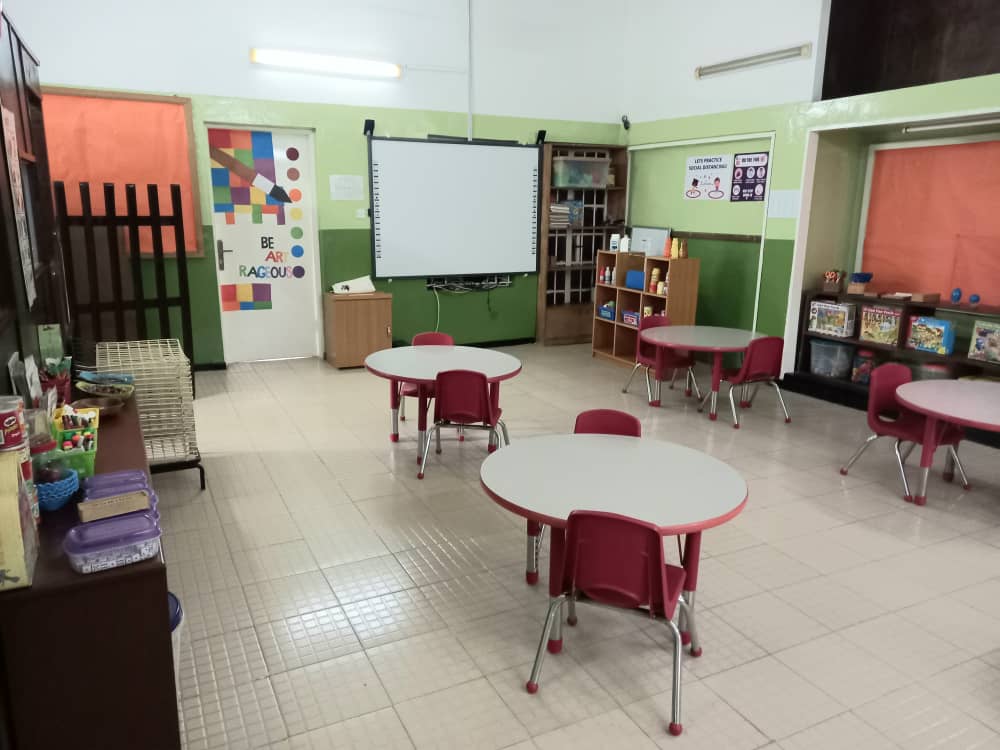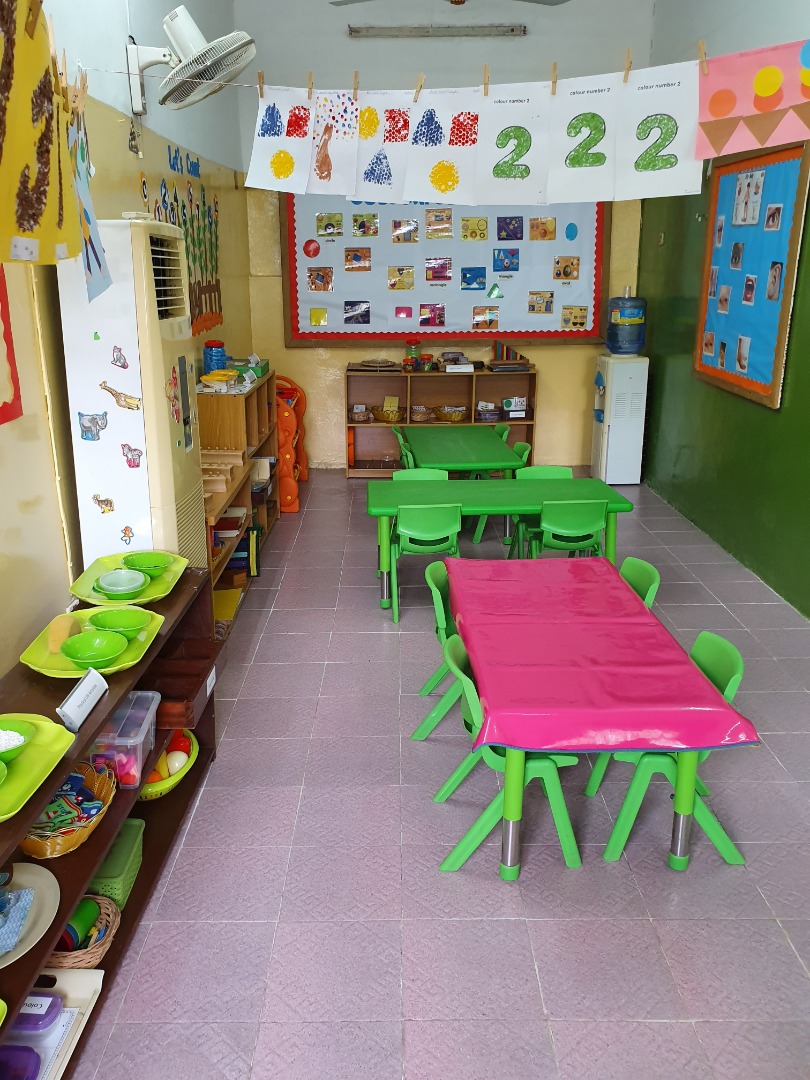
FOUNDATION STAGE
Foundation Stage education begins when children are 3years old. This stage of education makes a positive contribution to a child’s early development and learning.
At this stage, key learning skills such as speaking, listening, concentration, Persistence and co-operation are developed.
It is also aimed at developing early communication, literacy and numeracy skills that will prepare young children for Key Stage One (Year One and Two) of the National Curriculum.

THE MONTESSORI APPROACH
The Montessori Method was started by Dr. Maria Montessori an Italian medical doctor. She worked with children aged three to five years old.
This method offers a sensible and structured method, which allows each child develop at his/her pace.
It is based on children’s natural love for learning and enables them build a strong sense of independence and self-confidence as skills increase.
At Bambini School; we focus on two major areas of this method of teaching
- Practical Life Exercises.
- Sensorial Exercises

PRACTICAL LIFE EXERCISES
When children come into the world, their first function is to adapt to their environment so that they may become a member of the human group, which they uniquely belong to.
The daily activities undertaken by adults, is establishing, maintaining the living environment, care of others and care of the self: these are all intensely fascinating to the child because they are esthetic, logical and understandable.
The exercise of Practical life, which are the foundation of the Montessori environment, provide a safe and wholesome range of activities which allows the children to develop control and coordination of movement, awareness of their environment, orderliness, independent work habits, responsibility and many other human characteristics which can only be attained by spontaneous, purposeful work.
She designed and created a highly specialized form of apparatus, which to the child encourages him/her to work alone and teach him/ herself, so that they learn to work alone and with others.
These exercises are classified under the following headings:
- Care of the Environment
- Care of self
- Grace and courtesy
- Movement
There are materials for each of these areas, adapted to the children’s size, interest and capabilities.
Fundamentally, these exercises are the same all over the world, but distinct in their expression in different societies, since they reflect the domestic life of the particular culture where the Montessori environment is established.

SENSORIAL EXCERCISES
Sensorial materials have been given many names Materialized Abstraction, Keys to the Universe, Paths to Culture.
The reason for the success and popularity of these materials is that they allow the children to undertake activities that all children undertake spontaneously.
Children will sort things by size, shape, colour, touch, sound, temperature and weight. They will grade from dark to light and from large to small.
Sensorial materials are mathematically graded; they isolate one quality only, keeping the remaining characteristics identical and limited in both scope and quality. Moreover, they have a built in control of error.
Thanks to the control of error inherent in sensorial materials, the children acquire the habit of working independently, unafraid of making mistakes, becoming comfortable with the fact that errors are essential to the process of learning and this establishes a tendency towards intellectual honesty.
